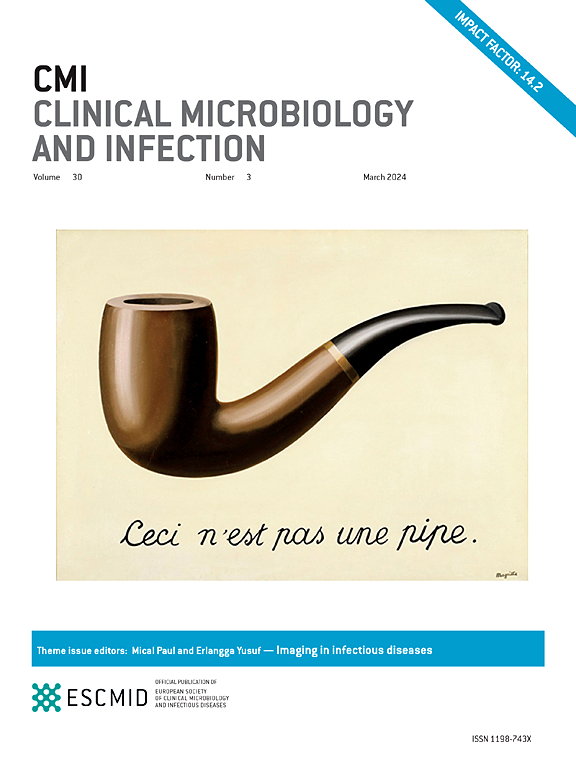Quantifying the long-term effects of measles infection—a retrospective cohort study
IF 10.9
1区 医学
Q1 INFECTIOUS DISEASES
引用次数: 0
Abstract
Objectives
To assess whether measles infection has an impact on the rate of non-measles infectious diseases over an extended period.
Methods
This retrospective matched cohort study included 532 measles-diagnosed patients who were exactly matched with 2128 individuals without a previous measles diagnosis. Adjusted OR for any all-cause infectious diagnosis and any viral infection diagnosis ≤2 years after measles diagnosis between the measles and control groups was obtained from a conditional logistic regression model. The Cox proportional hazards model was used to estimate the hazard ratio.
Results
Previous measles virus (MeV) exposure was associated with an increased risk for all-cause non-measles infectious disease diagnosis (OR: 1.83, 95% CI: 1.26–2.64, p 0.001), with 492 diagnoses in the MeV-exposed group and 1868 diagnoses in the control group. Additionally, previous MeV exposure was linked to a higher risk of viral infection diagnosis (OR: 1.23, 95% CI: 1.01–1.59, p < 0.05), with 302 viral infection diagnoses in the MeV-exposed group and 1107 diagnoses in the control group. The hazard ratio for viral diagnosis in the MeV-exposed group compared with the control group was 1.54 (95% CI: 1.18–2.02, p < 0.001).
Discussion
Individuals diagnosed with measles had a moderately increased risk of being diagnosed with all-cause non-measles infectious disease or viral infection. This observational individual-level study supports previous ecological and individual population-level studies.
量化麻疹感染的长期影响 - 一项回顾性队列研究。
目的评估麻疹感染是否会长期影响非麻疹传染病的发病率:这项回顾性配对队列研究包括 532 名确诊为麻疹的患者,他们与 2 128 名既往未确诊为麻疹的患者完全配对。通过条件逻辑回归模型得出了麻疹组和对照组之间在麻疹确诊后 2 年内任何全因感染诊断和任何病毒感染诊断的调整奥德比。采用 Cox 比例危险模型估算危险比:- 既往麻疹(MeV)暴露与全因非麻疹传染病诊断风险增加有关(OR = 1.83,95% CI 1.26-2.64,p = 0.001),麻疹暴露组有 492 例诊断,对照组有 1868 例诊断。此外,曾暴露于 MeV 与诊断出病毒感染的更高风险有关(OR = 1.23,95% CI 1.01-1.59,p < 0.05),暴露于 MeV 组诊断出 302 例病毒感染,对照组诊断出 1107 例。与对照组相比,暴露于 MeV 组病毒感染诊断的危险比为 1.54(95% CI 1.18-2.02,p < 0.001):结论:确诊为麻疹的患者被诊断为各种原因引起的非麻疹传染病或病毒感染的风险适度增加。这项个体层面的观察性研究为之前的生态和个体人群层面的研究提供了支持。
本文章由计算机程序翻译,如有差异,请以英文原文为准。
求助全文
约1分钟内获得全文
求助全文
来源期刊
CiteScore
25.30
自引率
2.10%
发文量
441
审稿时长
2-4 weeks
期刊介绍:
Clinical Microbiology and Infection (CMI) is a monthly journal published by the European Society of Clinical Microbiology and Infectious Diseases. It focuses on peer-reviewed papers covering basic and applied research in microbiology, infectious diseases, virology, parasitology, immunology, and epidemiology as they relate to therapy and diagnostics.

 求助内容:
求助内容: 应助结果提醒方式:
应助结果提醒方式:


